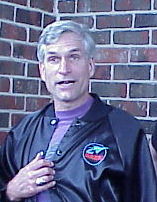A Quote by Karen Armstrong
I never intended to be a historian of religion. My aim was to become a professor of English Literature in a university, but I had a series of absolute career disasters and found myself making television programs about the nature of religion and about Christian history and started to discover about other religious traditions, and that was an absolute eye-opener for me.
Quote Topics
Related Quotes
You can't relate to an absolute or it wouldn't be absolute, it would be relative. On an intellectual level, that's easy. However, you hear theologians in the theistic traditions talk about absolute God, and I saw God, or God spoke; speaking, being seen, these are all relational things. So what is absolute about such a being, wouldn't actually be absolute.
The introduction of the Christian religion into the world has produced an incalculable change in history. There had previously been only a history of nations--there is now a history of mankind; and the idea of an education of human nature as a whole.--an education the work of Jesus Christ Himself--is become like a compass for the historian, the key of history, and the hope of nations.
I have no expertise of other religious traditions so I'm not going to opine on them, but in Islam the more you know about the religion, the more likely you're going to go to hell. Many people will find that paradoxical because we tend to think of religion as a way of making ourselves feel better and a way of damning and excluding infidels or reprobates or heretics or what have you. It was very hard for me to find an Islam that belongs to me and doesn't feel like it's been imposed on me.
I was raised in a religious home. It was unreasonable enforced religion that turned me off it. It was a joyless, unpleasant, stupid, barbaric thing when I was a child and I've never gotten over that feeling. If you're talking about religion it's one thing; I don't hold Jewish religion with any more seriousness than I would any other.
Religions, of course, have their own demanding intellectual traditions, as Jesuits and Talmudic scholars might attest.... But, in its less rigorous, popular forms, religion is about as intellectually challenging as the average self-help book. (Like personal development literature, mass market books about spirituality and religion celebrate emotionalism and denigrate reason. They elevate the "truths" of myths and parables over empiricism.) In its more authoritarian forms, religion punishes questioning and rewards gullibility. Faith is not a function of stupidity but a frequent cause of it.
The religious conflicts of the Reformation era were never simply and only about religion, because religion during this era as in the Middle Ages that preceded it, informed and was meant to inform every domain of life. Violence involving religion and touching other areas of life took many forms: from the Protestant destruction of Catholic religious art and objects in iconoclasm, to Catholic executions of Protestants who refused to renounce their views, to major destructive conflicts such as the French Wars of Religion and the Thirty Years' War.
Religion is important for humanity, but it should evolve with humanity. The first priority is to establish and develop the principle of pluralism in all religious traditions. If we, the religious leaders, cultivate a sincere pluralistic attitude, then everything will be more simple. It is good that most religious leaders are at least beginning to recognize other traditions, even though they may not approve of them. The next step is to accept that the idea of propagating religion is outdated. It no longer suits the times.
Bill Maher is right to condemn religious practices that violate fundamental human rights. Religious communities must do more to counter extremist interpretations of their faith. But failing to recognize that religion is embedded in culture — and making a blanket judgment about the world’s second largest religion — is simply bigotry.





































